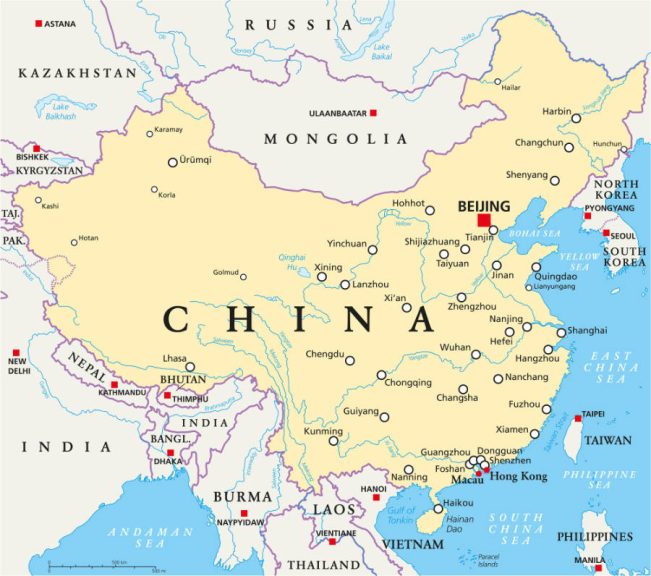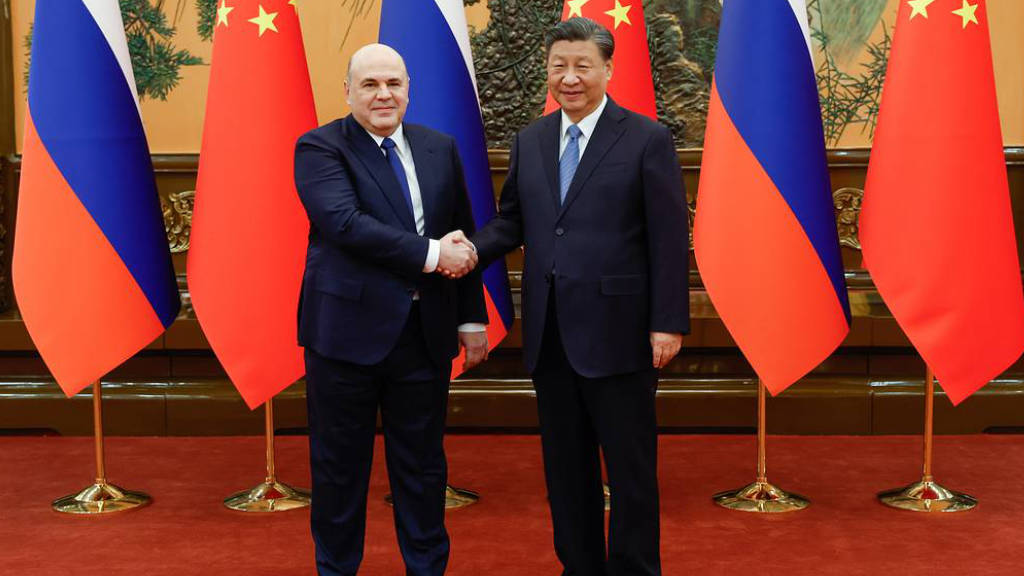The Russian Prime Minister Mikhail Mishustin and Chinese President Xi Jinping have met with their respective business delegations at the Great Hall of the People in Beijing.
Mishustin was accompanied by Deputy Prime Ministers Tatyana Golikova, Dmitry Chernyshenko, Yury Trutnev and Alexander Novak, Ambassador of the Russian Federation to China Igor Morgulov, Minister of Agriculture Oksana Lut, Minister of Economic Development Maxim Reshetnikov, Minister of Finance Anton Siluanov, Minister of Transport Andrey Nikitin, Deputy Foreign Minister Andrey Rudenko, Deputy Chief of Staff of the Government Elmir Tagirov and State Secretary and Deputy Chairman of the Central Bank Alexey Guznov.
The talks come as Russia seeks to stabilise economic ties with its main strategic partner following a small decline in bilateral trade during 2025. China, which had been a key buyer of Russian oil, saw state firms pause seaborne purchases last month due to U.S. sanctions on major Russian producers Rosneft and Lukoil.
In 2024, China-Russia trade reached a record high of approximately US$245 billion, a sharp increase from 2020 when it was US$104 billion. The growth has primarily been driven by Russia’s growing appetite for Chinese manufactured goods such as cars and electronics as Western firms pulled out of the Russian market, as well as China’s increased purchase of Russian energy resources. However, this trade balance is structurally imbalanced, with Russia exporting raw materials and China exporting finished products. Trade has slowed in recent months amid U.S. pressure on China over its commercial and technological links with Moscow with 2025 bilateral trade estimated to have contracted by about 10%. Not all of this is related to sanctions on Russia. Both countries have recognised the need to add value in their trade relationship, and to deepen relationships between China’s 30 Provinces and regions, and Russia’s 81 differing regions. At present, most of Russia-China trade is concentrated on China’s Northern Provinces such as Heilongjiang and Xinjiang, and Russia’s Primorsky Krai. Improved trade balancing will occur when specific regions better understand their pertinent needs and export potentials. This trip is designed to help accomplish this and move trade forward.
Xi said that China and Russia would continue strengthening ties despite a “turbulent external environment” and that safeguarding and advancing the China-Russia relationship was a “strategic choice for both sides” and pointed to potential growth in sectors such as energy, agriculture, aerospace, the digital economy and green development. Mishustin called for continued efforts to support joint investment projects.
Mishutin said that Russia is ready to work with China to follow through on the important consensus reached between the two presidents, deepen cooperation in economy, trade, science, technology, energy, agriculture and digital economy, strengthen people-to-people exchanges, and enhance multilateral coordination to deliver more outcomes in the cooperation between China and Russia.
Xi and Russian President Vladimir Putin had declared a “no-limits” partnership in February 2022. Since then, Beijing has become a key economic lifeline for Russia, with increased RMB-Yuan/Rouble based settlements and deepening energy ties.

Earlier, Mishustin and his delegation had met with Chinese Premier Li Qiang, as they co-chaired the 30th regular meeting of Chinese and Russian heads of government in Hangzhou, eastern China.
Li stated that China stands ready to work with Russia to deepen cooperation across all fields and protect their shared development and security interests. He said that China is willing to strengthen strategic communications, align development strategies and broaden cooperation in trade, energy, technology and people-to-people exchanges. He emphasized that the countries’ “comprehensive strategic partnership of coordination for a new era” is at a historic high.
Mishustin noted Russia’s readiness to expand joint efforts with China in investment, transportation, digital economy and cultural cooperation, saying bilateral ties had reached the highest level of trust and coordination.
The meeting produced a joint communiqué and the signing of cooperation agreements covering areas such as customs services and satellite navigation, underscoring the two countries’ intent to formalize and systematize their strategic alignment.
The renewed China-Russia commitment signals further Asian alignment within their mutual economies, which will deepen regional trade linkages and increase strategic flows in energy, tech and infrastructure. Investors should monitor implications for Eurasian investment corridors.
For the latest updates concerning Russia-China trade and investment intelligence, and the latest projects, please click here.
Further Reading

 Русский
Русский













